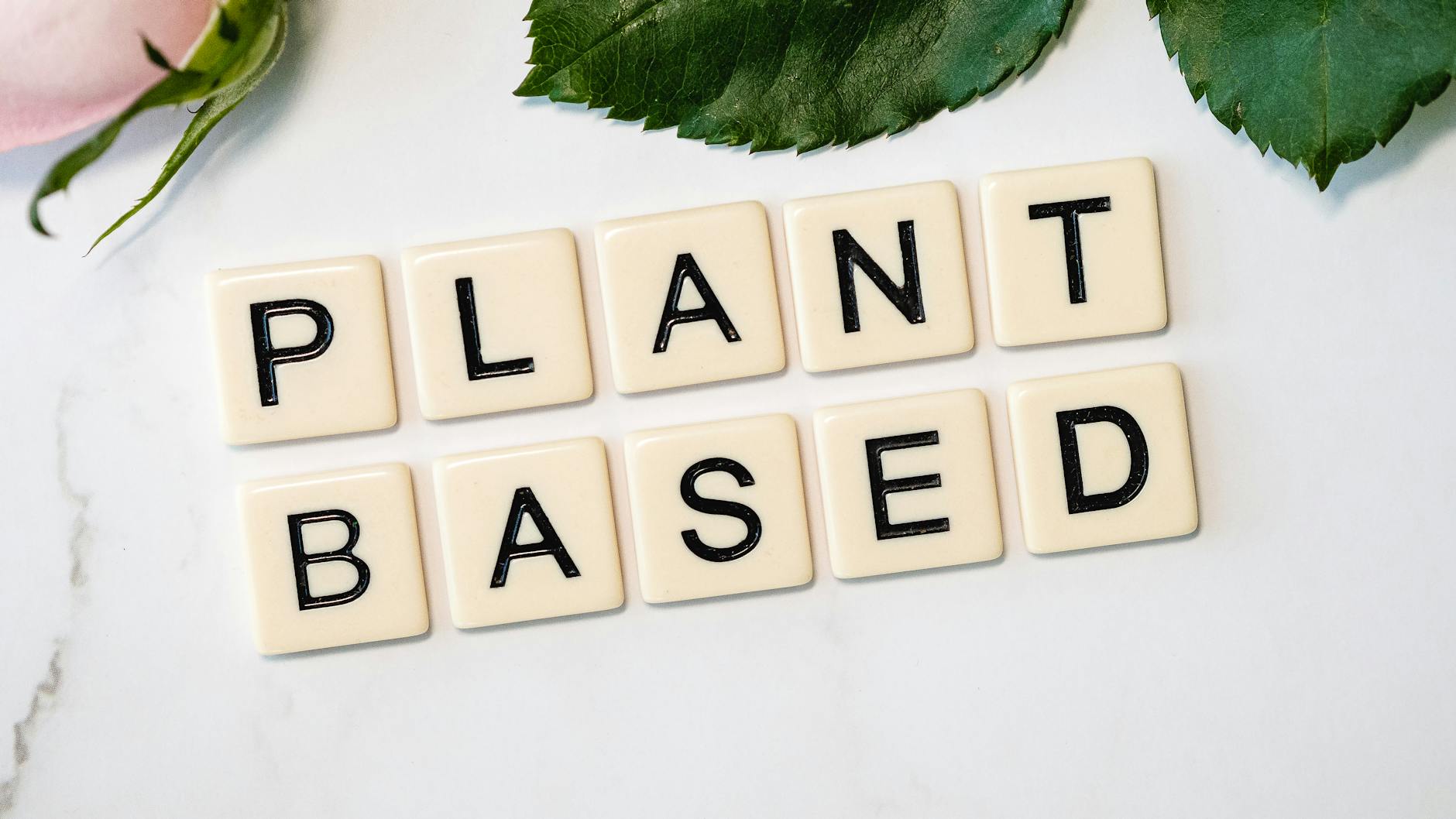April 4th, 2024
A Vegan Diet for ADHD?
Plant-based diets are more popular than ever. Many parents ask me if a vegan diet for ADHD is a good option for their kids. My answer: absolutely not. Let’s get into the nitty-gritty of why I never recommend this diet for kids.
3 Reasons Vegan Diets Are So Popular
Let’s start with an obvious question: why are so many people going plant-based? Turns out there are 3 main reasons people choose a vegan diet:
1. Health Benefits
Many people choose veganism after hearing how much healthier and nutritious it can be. A balanced, whole food-based vegan diet will contain a lot of fruits, vegetables, nuts, seeds, and whole grains. Many people don’t consume enough of these foods so switching to vegan can increase overall consumption.
2. Environmental Impact
Livestock takes up a lot of land and demands a lot of resources to raise. With the ever-increasing concerns over climate change, people are turning to veganism as a way to decrease their impact on the environment.
3. Ethical Reasons (Animal Rights)
Those who love animals don’t want to see them subjected to cruelty. Many cases of inhumane conditions on both meat and dairy farms have been exposed over the past decade, turning many people off animal products.

Those Are Some Good Reasons To Go Vegan – Why Isn’t a Vegan Diet For ADHD a Good Idea?
It’s true – the above reasons do sound pretty amazing: be healthier, save the planet, and help animals. Sounds too good to be true, right?
Turns out like most things that seem too good to be true: it’s not what it seems. Let’s get into the problems with this over-hyped diet trend.
As for ethics and the environment, I won’t get into either because they’re not my areas of expertise. But, as a Nutrition pro, the argument that veganism is healthier is what I’m going to address.
A Vegan Diet Isn’t Necessarily Healthier
Yes, if you follow an ideal vegan diet, it’s gonna be chock full of veggies, fruits, seeds, nuts, and whole grains like oats, quinoa, and brown rice.
But the vast majority of vegans aren’t following the ideal diet. In fact, many processed vegan snacks like granola bars, cereals, muffins, and breads are far higher in sugar and additives than their non-vegan counterparts.
And let’s take a minute to discuss “vegan versions” of meat-based meals like hamburgers and hot dogs. These products are some of the most processed foods that exist. They’re often loaded with sodium and use synthetic vitamins and minerals to bump up the nutrition values on their labels. The problem is those “added vitamins” are much harder to absorb from a vegan patty than actual meat. Turns out real, unprocessed meat is a better option in most cases.

Even If You’re Eating a Whole Foods-based Vegan Diet For ADHD, You’re At Risk For Deficiencies
Arguably the biggest reason that a vegan diet doesn’t work for most people, especially if they’ve got mental health issues like ADHD, is that it can lead to deficiencies in 4 key nutrients that are absolutely crucial to cognition and emotional well-being.
PLUS, all 4 of these nutrients are already found in lower levels in the ADHD population.123
Omega 3s
Omega 3s are the most researched supplement for ADHD. Potent Omega 3 supplements can impact memory and focus. You don’t want to consume less of this nutrient in your daily diet.
The easiest way to get adequate Omega 3s through diet is by eating rich food sources:
- salmon
- sardines
- herring
- oysters
- mackerel
But that’s not happening with a plant-based diet. In fact, the majority of people (vegan or not) need to supplement to get enough Omega 3s – turns out our society’s just not that into fatty fish.
What about plant-based Omega 3s? The jury’s still out on how effectively our body can process them. And with a nutrient this important, it’s best to go with what we know is a great source of Omega 3s: fish oil.
Omega 3 supplements are amazing – when they’re potent and pure. Look for a supplement with 1000+ mg of Omega 3s and more EPA than DHA. 2 great options are Barlean’s Citrus Sorbet and Nutrasea ADHD.
Iron
Iron is critical for cognitive function. Without enough Iron, our body can’t get oxygen to the brain (or anywhere else!) and that’s bad news for mental health.
The best food sources of Iron are all animal-based:
- red meat (beef, lamb, bison)
- certain shellfish (oysters, mussels, crab)
- organ meat like liver
- turkey
What about plant-based sources of iron that we hear so much about? It’s true, there are iron-fortified cereals and certain vegan options like tofu and black beans have substantial iron levels. But, plant sources of iron (“non-heme” iron to get technical) aren’t absorbed as well as animal-based options.4
PRO TIP: If you struggle to get Iron from animal sources, pairing plant-based iron with vitamin C can aid in its absorption.
PRO TIP 2: If you think your kid needs a boost of Iron, Kidstar makes a great option for daily maintenance doses that won’t cause tummy troubles.
Vitamin B12
Vitamin B12 is so crucial for cognitive function that an advanced deficiency can cause dementia!
Like the above nutrients, the best sources of B12 are animal-based:
- Beef
- Seafood
- Dairy products
There are fortified vegan-friendly B12 sources but they aren’t absorbed well by everyone. In fact, even “Forks Over Knives” – one of the most pro-vegan groups around – recognizes this issue and recommends everyone following a vegan diet supplements with B12.
PRO TIP: Not all B12 is created equal. The form called Methylcobalamin is more effectively used by our bodies. If you’re looking for a Kid-Friendly B12 supplement, MegaFood makes this great option.
Zinc
Most people know Zinc as an immune health booster. But its role in mental health is just as important.
Zinc plays a crucial role in emotions, memory, and learning and those are areas deeply impacted by ADHD. Zinc is found in many animal-based products such as:
- Oysters – these have a LOT of Zinc
- Beef
- Crab
- Turkey
- Shrimp
- Cheese
There are many plant-based sources of Zinc as well, such as pumpkin seeds, fortified cereals, and lentils. But, in my experience as a Nutrition coach, most vegans are either not eating enough or are putting a ton of effort into engineering their diets to contain enough of it. That amount of effort just isn’t sustainable for most families.

The Most Important Reason Not to Try a Vegan Diet For ADHD
The number one reason people fail when adopting a new diet for ADHD: it’s not sustainable.
Even if you manage to find a food combination and supplement regimen that meets all your kid’s nutrient needs, going vegan is a big change for most people.
It often requires:
- Reading a lot of labels
- Learning new recipes – that won’t all be a hit.
- Cutting out favourite foods
- Spending more money on supplements
Any diet that demands a lot of time, money, and willpower will likely fail.
Unfortunately, when someone can’t stick with a diet, they get discouraged from trying any other dietary changes that may actually work for them.
So, What is the Best Diet for ADHD?
While there’s not one specific diet or meal plan that works for everyone, there are a few basic guidelines to follow when you’re trying to optimize focus and balance energy levels and emotions.
ADHD Nutrition 101
- Adequate Protein – Protein is used to build neurotransmitters that regulate emotion, memory, and sleep patterns. Kids need about 1.5 grams of protein per kg of body weight daily. For some quick no-prep protein sources, check out this post.
- Balanced Blood Sugar – Pairing high-carb snacks (or high-sugar treats) with a source of protein or fat will help reduce those sugar highs and angry lows. Click here for some balanced snack ideas.
- Hydration – The hidden cause of so much brain fog! If your kid’s urine is dark yellow, they could be dehydrated…and it could be impacting their concentration. If your kid doesn’t like water, try herbal teas (hot or cold) or mix some Bubly or La Croix flavoured water into the mix – they’re sugar-free and don’t have nasty chemicals.
- Sufficient Fruits and Veggies – Chockful of Vitamin C, Fruits and veggies help the body regulate neurotransmitters like dopamine and serotonin that help regulate mood and attention.
Focusing on these basic rules of Good Brain Nutrition will help your kid get all the nutrients he needs to support brain growth and development.
Often, ADHD Nutrition is hard to navigate online and filled with conflicting opinions and advice that’s hard to put into action.
If you’re ready to stop Googling and start taking the first steps to ensuring your child’s diet includes exactly what’s required to thrive, I’d love to help you develop a personalized, easy-to-follow Nutrition plan that fits with your lifestyle and gives you peace of mind. Click here to book your free assessment call with me and learn if Nutrition coaching is a good fit for your family.


One Response to A Vegan Diet for ADHD?